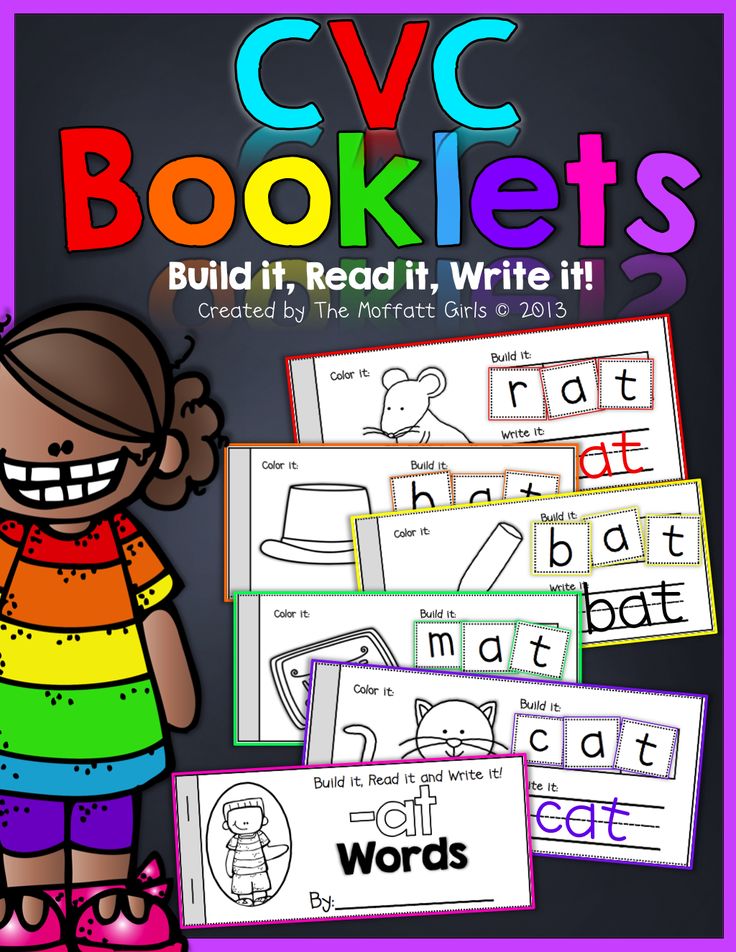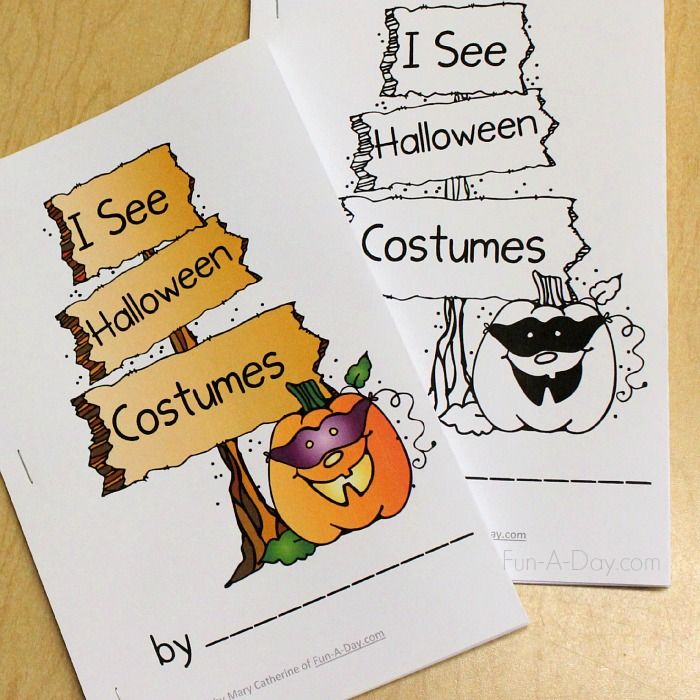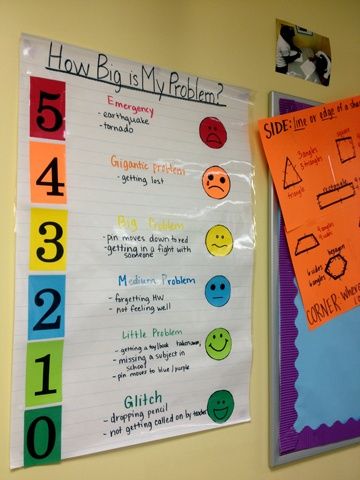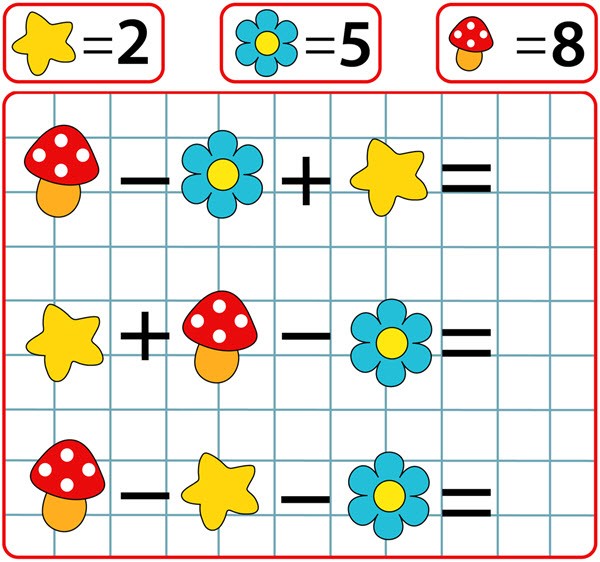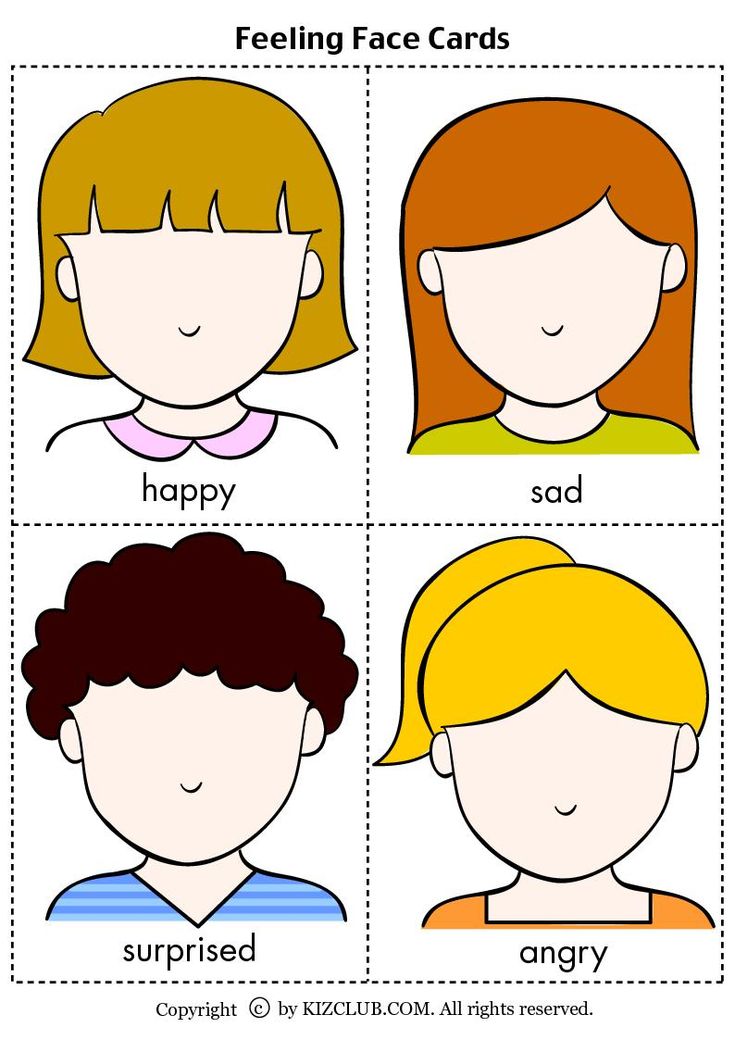Steps to help the child cope with stress
Stress Management for Children: 5 Essential Steps
Studies show children and teens are more stressed out today than ever before. The combined pressures of schoolwork, high-stakes exams, social life, sports, or other activities, plus lots of screen time have resulted in much higher levels of anxiety and stress among young people.
We can't completely eliminate stress for our children. Plus, shielding your child from the difficulties of life won’t do them any favors. It’s far more powerful to raise a resilient child who can bounce back from hardship and challenges.
Since stress is a natural part of life, your goal is to teach your child healthy strategies for coping with stress. You can start by following the five steps below.
Before you continue, we thought you might like to download our FREE When I Feel Worried Poster. Use this popular printable to make a plan with your child for when their worry shows up. Your child will have a list of their own coping strategies to calm their worry and anxiety
Before you begin helping your child cope with stress, be certain what they are stressed about is within their circle of control.
Help your child shift from a “stress hurts” mindset to a “stress helps” mindset. Stress can be an impetus to growth if children understand that stressful situations won’t last forever. Instead, these situations represent challenges to overcome and lessons to learn.
Cognitive neuroscientist and author Ian Robertson compares the stress response system to the immune system: It gets stronger with practice.
After a strong stress response, the brain rewires itself to remember and learn from the experience. This is how the brain prepares you to handle similarly stressful situations next time around.
Stress causes the brain to secrete a chemical called noradrenaline. The brain can’t perform at its best with too much noradrenaline. But guess what? Too little noradrenaline isn’t good either.
Reasonably low-stress levels can actually build stronger brain function, which makes humans smarter and happier, according to Robertson.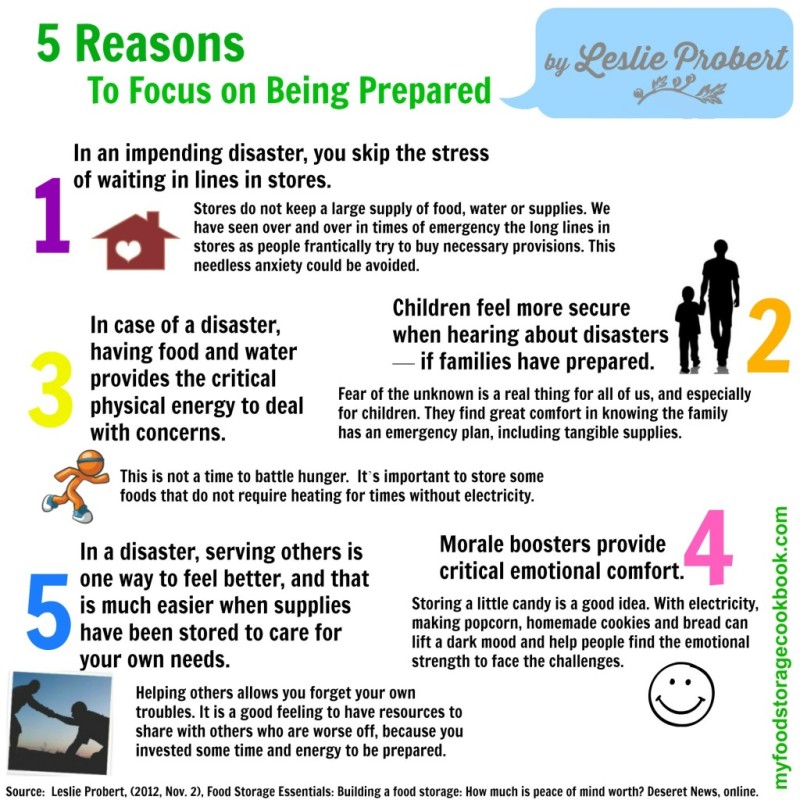
Armed with the information above, you’re ready to help your child reframe stress. Follow the steps below to get started:
1) Adopt the “stress helps” mindset yourself. Accept that you can’t prevent stress, that some stress is actually beneficial, and that stress can be an opportunity to grow. If you don’t have this mindset, it will be almost impossible to teach it to your child. (Plus, reducing your own stress is vital—stress can be “contagious.” When your child senses your stress, it actually alters their physiology to automatically go into stress mode too.)
2) Understand the reasons behind your child’s stress, rather than dismiss it. To an adult, a child’s problems may seem trivial. But they seem big to the child, and they are causing the child genuine stress or discomfort.
3) Help your child reframe stress by discussing the following:
- Stress is a natural part of life.
- Stress comes and goes.
- Stressful situations can be beneficial if you learn from them, take action, and seek solutions.
 Provide examples from your own experiences.
Provide examples from your own experiences.
4) Guide your child to find areas of growth or lessons that can come from their latest challenge.
- Ask your child to think of previous stressful situations. What did they learn from those experiences?
- What strengths did they use to handle these situations?
- What strengths can they use now?
Once stress is viewed as an opportunity for growth, your child will develop a much healthier relationship with stress and find it easier to manage.
Step 2: Shift from a Fixed Mindset to a Growth Mindset
Reframing stress means your child will need to switch from a fixed mindset to a growth mindset. Studies show even brief growth mindset training significantly reduces stress and improves grades among teens.
In stressful situations, we often feel overwhelmed and are more likely to fall into a fixed mindset thought process; there’s nothing much we can do to change the situation, our abilities are limited to what we can do, and we might as well stop trying.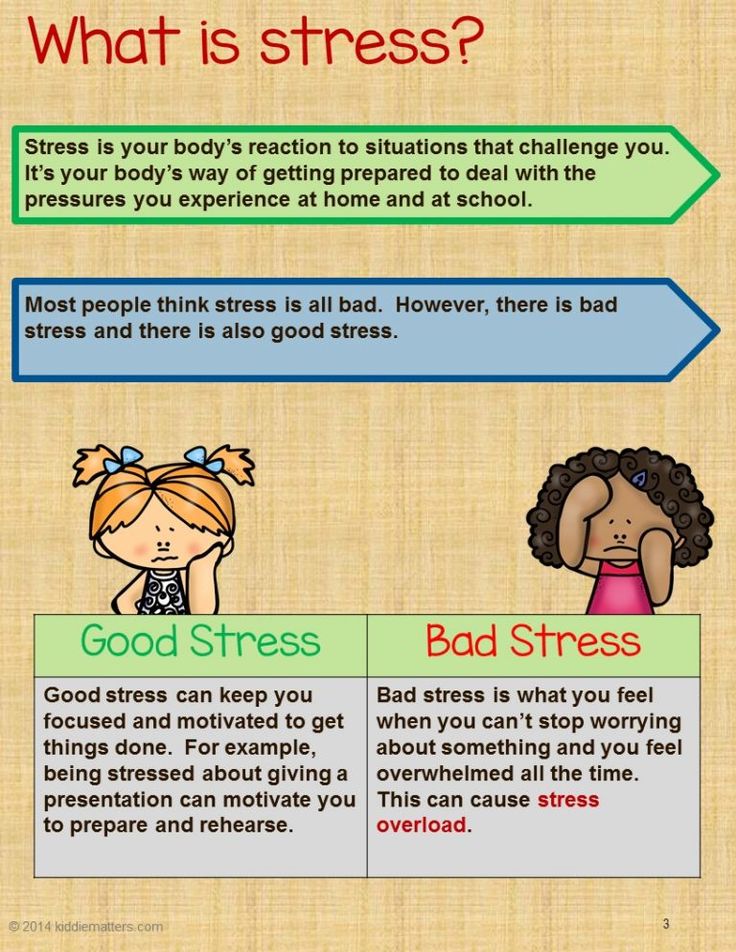
For example, if your child is stressed about exams, they might think, “It doesn’t matter how much I study. I’ll never be able to pass these tests. It’s hopeless.”
Help your child look at the situation from a growth mindset perspective - it’s not fixed, it can be improved, and they do have the power to influence the situation.
If you hear your child say a fixed mindset statement like, “I can’t do this,” or, “I’m just not good at math,” help them find a growth mindset alternative.
Encourage your child to practice growth mindset affirmations, and remind them that putting forth effort and trying different solutions will help them solve the problem and reduce their stress.
Of course, a mindset shift doesn’t happen overnight. Throughout this process, focus on and celebrate incremental improvement.
For more tips on teaching growth mindset, visit our 4-week guide for teaching growth mindset to children.
Step 3: Stop Catastrophic Thinking
Often, children and teenagers (and sometimes adults) respond to stress with catastrophic thinking.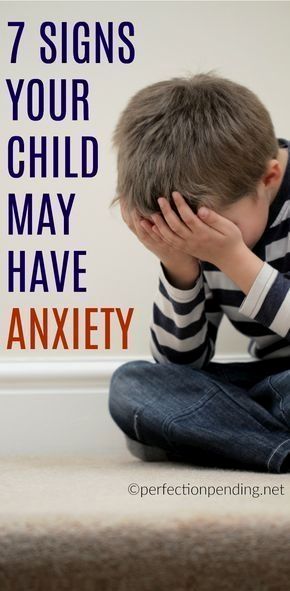 “If I fail this test, my whole life is ruined!” or, “Sarah isn't being nice to me. No one will ever like me!”
“If I fail this test, my whole life is ruined!” or, “Sarah isn't being nice to me. No one will ever like me!”
When this occurs, start by validating your child’s emotions so they feel listened to and understood. “I understand you’re feeling nervous about your algebra test.”
Next, use the “worst-case scenario exercise.” Ask your child, “What’s the worst thing that could happen?” If your child really does fail the test, or if Sarah keeps being unkind, what’s the absolute worst thing that could happen?
You can also ask your child how likely it is this scenario will happen, or if any other scenarios are MORE likely to occur. Conclude by asking, “What would you do if it did happen?” and help your child brainstorm if they struggle to come up with a solution.
Coming up with a potential solution will help your child feel more in control of their stress. Once they have a plan for the worst-case scenario, they’ll also spend much less time worrying.
The purpose of this exercise is NOT to dismiss your child’s fears but to help your child realize the “worst thing” is probably not as catastrophic as they initially imagined.
Don't forget to download our FREE When I Feel Worried Poster so your child has a list of their own coping strategies to calm anxiety and worry.
Step 4: Practice Problem-SolvingOnce your child has reframed stress and adopted a growth mindset, they need to learn how to put these ideas into practice by problem-solving. This will likely take many examples, modeling, and real-life experience before it truly takes root.
You can find a variety of developmentally appropriate activities and strategies for teaching problem-solving here. A good starting point is to teach your child the following three-step process:
- Step One: Naming and Validating Emotions. Ask your child to name how they're feeling—overwhelmed, worried, anxious—and then repeat it back to them.
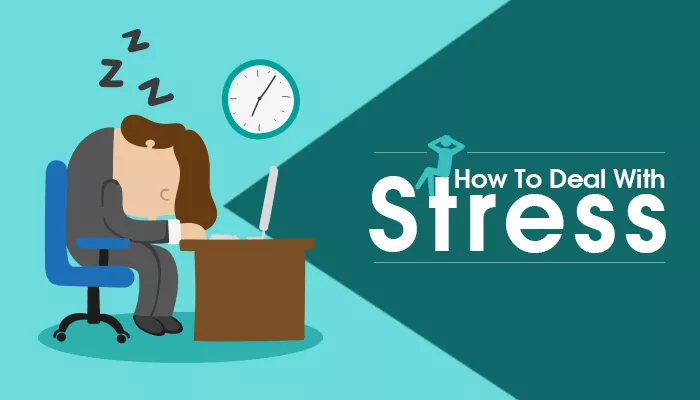 “I understand you’re worried you won’t do well on your exam.”
“I understand you’re worried you won’t do well on your exam.” - Step Two: Processing Emotions. Guide your child to their calming space. If they don't have one, it's a good idea to create it (we recommend the Time-In Toolkit by Generation Mindful). Let them calm their body and process their emotions so they're ready to problem solve, learn, and grow. You may have older children take deep breaths or practice some growth mindset affirmations. “I can do well on this test if I try.”
- Step Three: Problem Solving! Brainstorm solutions with your child, doing more listening than talking during the conversation. For instance, your child may come up with solutions such as studying with a friend who’s doing well in the class, asking the teacher for extra help, or devoting a certain amount of time to studying each day.
Once you’ve brainstormed solutions, help your child think through the positive and negative consequences of each proposed idea and then choose one.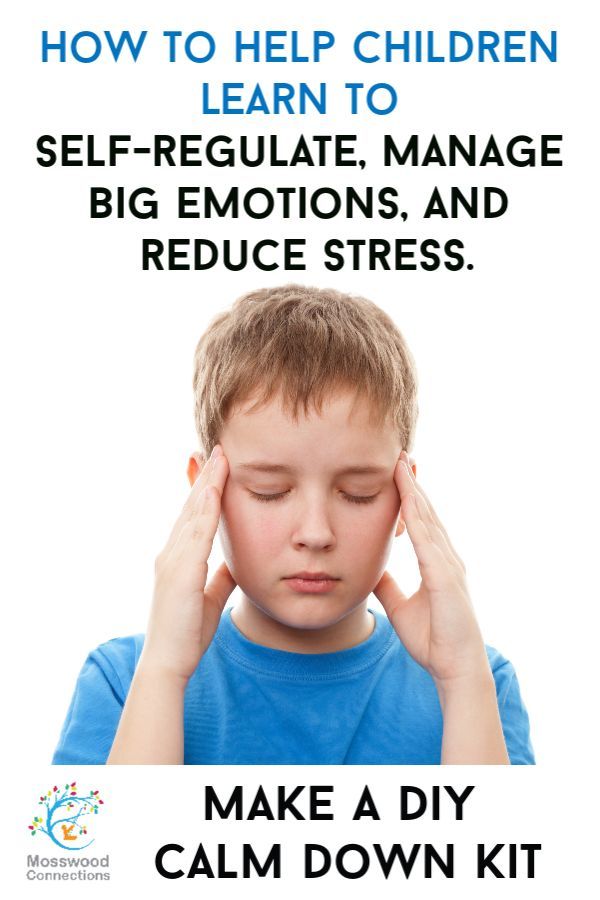 Your child may need prompting but aim to contribute only open-ended questions to the conversation, allowing your child to do most of the problem-solving themselves.
Your child may need prompting but aim to contribute only open-ended questions to the conversation, allowing your child to do most of the problem-solving themselves.
If the initial plan (let’s call it Plan A) doesn’t work, your child will have numerous backup plans ready and waiting. Knowing this will make their problem much less stressful. And once they master the art of problem-solving, they’ll have the tools they need to tackle stressful situations on their own.
Step 5: Use Stress-Management TechniquesThe techniques listed above will work best when your child is in a calm state of mind that’s conducive to thinking critically and logically. You can help your child achieve this calm state using stress-management techniques.
There are many strategies for managing stress, so consider trying a few of the techniques listed below to determine what works for your child:
- Deep breathing: Breathe in deeply, hold the breath for a moment, then slowly release it.
 Repeat the process until your child feels calmer.
Repeat the process until your child feels calmer. - Progressive muscle relaxation: Pretend you’re squeezing a lemon, then drop the lemon and relax. Pretend you’re pushing your toes deep into a mud puddle, then step out of the mud puddle and relax your feet.
- Stretching: This helps release built-up tension in muscles.
- Listening to music
- Playing, exercising, or heading out into nature
- Using brain breaks when facing a difficult academic challenge
- Laughing: Laughter can be a good stress reliever. Make silly faces or tell jokes to calm your child before discussing the problem.
- “5-4-3-2-1” Technique: Identify five things you can currently see, four you can hear, three you can feel, two you can smell, and one you can taste.
- Meditation: It can be as simple as having your child close their eyes and breathe in and out. Tell your child to count each breath (a breath in and a breath out makes one single count), focusing on the sound of their breath.
 When they reach a minimum count (50, for example), your child can take a deep breath, release it slowly, and open their eyes.
When they reach a minimum count (50, for example), your child can take a deep breath, release it slowly, and open their eyes.
Remember these techniques are not intended to eliminate stress. Rather, they help your child reach a calm state of mind so they can address the source of their stress and solve the problem.
When we view all stress as negative and unhealthy and attempt to eliminate it, we ultimately create more stress, for both ourselves and our children.
Instead, it’s best to teach our children that stress is a natural part of life that can be managed effectively.
Start by helping your child reframe stress, shifting from a fixed mindset, and the idea “stress hurts” to a growth mindset and the belief “stress helps.”
Help your child learn to recognize and stop catastrophic thinking, and teach them how to identify the stressor (main problem) and then brainstorm solutions. You can also try stress-management techniques to help your child reach a calm state of mind.
Your child can’t control how stressful situations unfold, but they can control how they respond to them. Instead of going into meltdown mode, they’ll go into problem-solving mode, allowing them to conquer the challenge and learn valuable lessons along the way.
Looking for additional resources to support building grit and resilience in your child? The Build Your Frustration Tolerance Masterclass is a self-paced growth mindset parenting masterclass where you'll learn how to help your child push ahead and persevere instead of quitting or giving up at the slightest setback. You'll get lifetime access so you can go through all the materials at your own pace. Our expert parenting educators will give you specific tools and strategies to raise a child who has the CONFIDENCE AND DETERMINATION to overcome their frustration and persevere.
Helping Kids Cope With Stress
Home | Patients and Families | Health Library | Helping Kids Cope With Stress
To adults, childhood can seem like a carefree time. But kids still experience stress. Things like school and their social life can sometimes create pressures that can feel overwhelming for kids. As a parent, you can't protect your kids from stress — but you can help them develop healthy ways to cope with stress and solve everyday problems.
But kids still experience stress. Things like school and their social life can sometimes create pressures that can feel overwhelming for kids. As a parent, you can't protect your kids from stress — but you can help them develop healthy ways to cope with stress and solve everyday problems.
Kids deal with stress in both healthy and unhealthy ways. And while they may not initiate a conversation about what's bothering them, they do want their parents to reach out and help them cope with their troubles.
But it's not always easy for parents to know what to do for a child who's feeling stressed.
Here are a few ideas:
Notice out loud. Tell your child when you notice that something's bothering him or her. If you can, name the feeling you think your child is experiencing. ("It seems like you're still mad about what happened at the playground.") This shouldn't sound like an accusation (as in, "OK, what happened now? Are you still mad about that?") or put a child on the spot. It's just a casual observation that you're interested in hearing more about your child's concern. Be sympathetic and show you care and want to understand.
It's just a casual observation that you're interested in hearing more about your child's concern. Be sympathetic and show you care and want to understand.
Listen to your child. Ask your child to tell you what's wrong. Listen attentively and calmly — with interest, patience, openness, and caring. Avoid any urge to judge, blame, lecture, or say what you think your child should have done instead. The idea is to let your child's concerns (and feelings) be heard. Try to get the whole story by asking questions like "And then what happened?" Take your time. And let your child take his or her time, too.
Comment briefly on the feelings you think your child was experiencing. For example, you might say "That must have been upsetting," "No wonder you felt mad when they wouldn't let you in the game," or "That must have seemed unfair to you." Doing this shows that you understand what your child felt, why, and that you care. Feeling understood and listened to helps your child feel supported by you, and that is especially important in times of stress.
Put a label on it. Many younger kids do not yet have words for their feelings. If your child seems angry or frustrated, use those words to help him or her learn to identify the emotions by name. Putting feelings into words helps kids communicate and develop emotional awareness — the ability to recognize their own emotional states. Kids who can do so are less likely to reach the behavioral boiling point where strong emotions come out through behaviors rather than communicated with words.
Help your child think of things to do. If there's a specific problem that's causing stress, talk together about what to do. Encourage your child to think of a couple of ideas. You can start the brainstorming if necessary, but don't do all the work. Your child's active participation will build confidence. Support the good ideas and add to them as needed. Ask, "How do you think this will work?"
Listen and move on. Sometimes talking and listening and feeling understood is all that's needed to help a child's frustrations begin to melt away.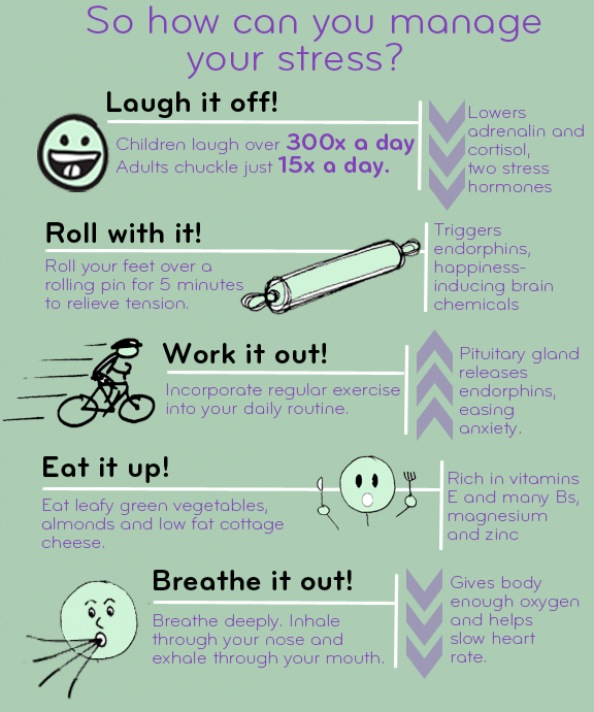 Afterward, try changing the subject and moving on to something more positive and relaxing. Help your child think of something to do to feel better. Don't give the problem more attention than it deserves.
Afterward, try changing the subject and moving on to something more positive and relaxing. Help your child think of something to do to feel better. Don't give the problem more attention than it deserves.
Limit stress where possible. If certain situations are causing stress, see if there are ways to change things. For instance, if too many after-school activities consistently cause homework stress, it might be necessary to limit activities to leave time and energy for homework.
Just be there. Kids don't always feel like talking about what's bothering them. Sometimes that's OK. Let your kids know you'll be there when they do feel like talking. Even when kids don't want to talk, they usually don't want parents to leave them alone. You can help your child feel better just by being there — keeping him or her company, spending time together. So if you notice that your child seems to be down in the dumps, stressed, or having a bad day — but doesn't feel like talking — initiate something you can do together.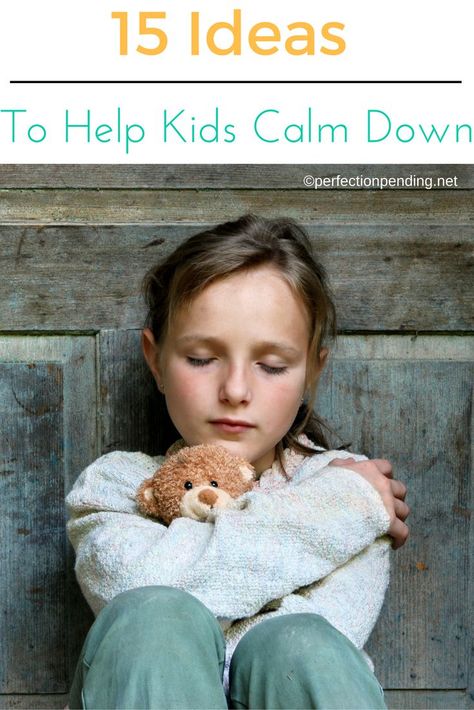 Take a walk, watch a movie, shoot some hoops, or bake some cookies. Isn't it nice to know that your presence really counts?
Take a walk, watch a movie, shoot some hoops, or bake some cookies. Isn't it nice to know that your presence really counts?
Be patient. As a parent, it hurts to see your child unhappy or stressed. But try to resist the urge to fix every problem. Instead, focus on helping your child, slowly but surely, grow into a good problem-solver — a kid who knows how to roll with life's ups and downs, put feelings into words, calm down when needed, and bounce back to try again.
Parents can't solve every problem as kids go through life. But by teaching healthy coping strategies, you'll prepare your kids to manage the stresses that come in the future.
Note: All information is for educational purposes only. For specific medical advice, diagnoses, and treatment, consult your doctor.
© 1995-2022 KidsHealth® All rights reserved. Images provided by iStock, Getty Images, Corbis, Veer, Science Photo Library, Science Source Images, Shutterstock, and Clipart.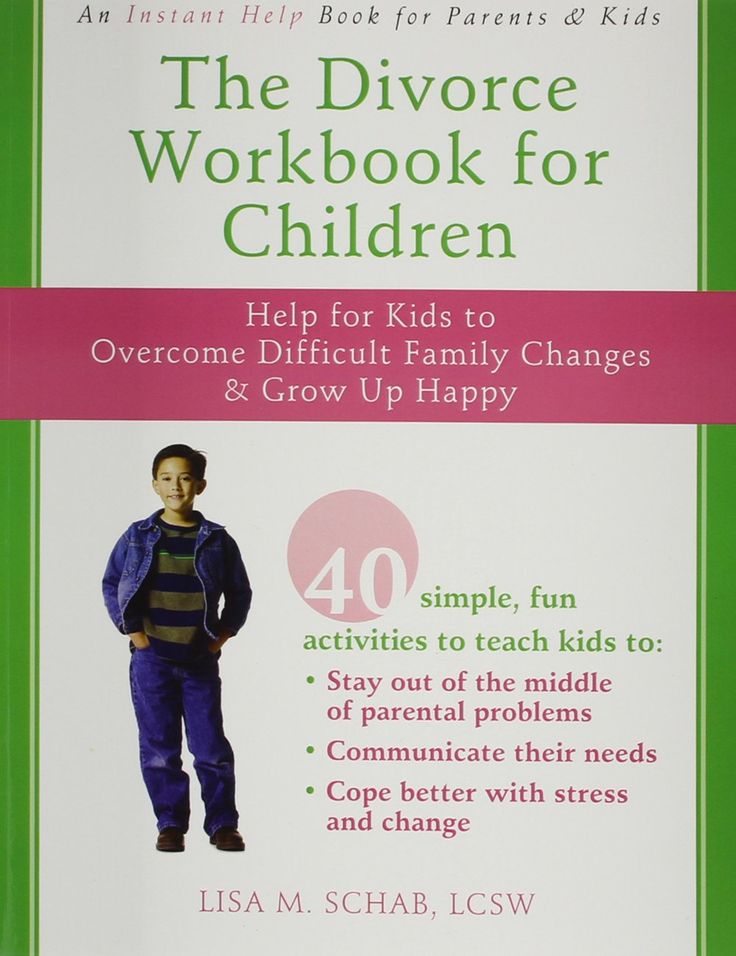 com
com
How to Help Your Child Manage Stress - Child Development
Stress is a natural and normal part of children's lives and is a constant companion of growing up. Children begin to experience stress at a very early age, and they are more vulnerable to psychological pressure than adults, because they do not yet have effective ways to deal with stress. Therefore, parents need to help ensure that children acquire the appropriate skills, which are extremely important not only in childhood, but also in adulthood.
What should parents do to help?
1. Consider protective factors
Why are some children more stress resistant than others? Research shows that there are many differences between those children who are able to successfully deal with stress and those who are not. Children who manage themselves well in stressful situations tend to have high self-esteem, a good sense of humor, a sense of control over their lives, a close-knit family and its clear organization (rules / restrictions), open communication and warm, trusting relationships with parents, a certain degree of religiosity, good relationships with friends and teachers, as well as approval and recognition for their achievements.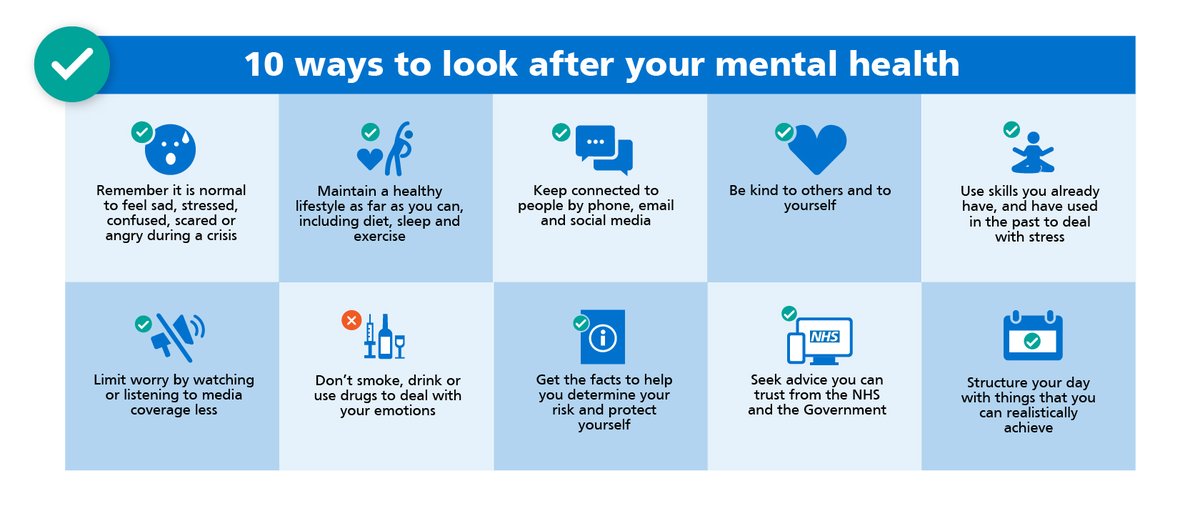
2. Help children learn to recognize signs of stress
Children have different symptoms of stress, all depending on the child's age, personality and developmental level. However, there are many clues given by children's bodies that children are under stress. Such clues may include a scratchy throat, wet palms, headache, fatigue, nausea, diarrhea, internal tension, indigestion, mood swings, restlessness, frustration, and sleep disturbance. There are other symptoms, such as withdrawal, irritability, aggressiveness, excessive daydreaming, excessive sensitivity, changes in eating habits, and general changes in behavior. Recognizing these signs is the first step in dealing with stress.
3. Prepare children for potentially stressful situations
Parents should prepare their children for potentially stressful situations, for example by rehearsing with their children how to behave in such situations. For example, if a child is feeling tense because of a conflict with a friend at school, parents should teach them how to talk to a friend to resolve the conflict.
4. Avoid being overprotective of children
Sometimes parents find it difficult to watch their children cope with stressful situations, as their first instinct tells them to protect their children from all sorts of dangers. However, stress is inevitable in a child's life. Parents do a disservice by constantly protecting him from stress. Children learn to cope with such phenomena only when they experience them firsthand.
5. Strive to develop the child's self-esteem
Parents should help children gain the confidence to solve problems by giving them responsibility and allowing them to make their own decisions from an early age. It is also necessary to promote the development of the interests and talents of children in which they are able to excel. Parents should constantly inspire, support and properly praise their children.
6. Give children support and approval
Parents should be close to their children when they are stressed, give them frequent hugs, pats on the back, kisses, etc.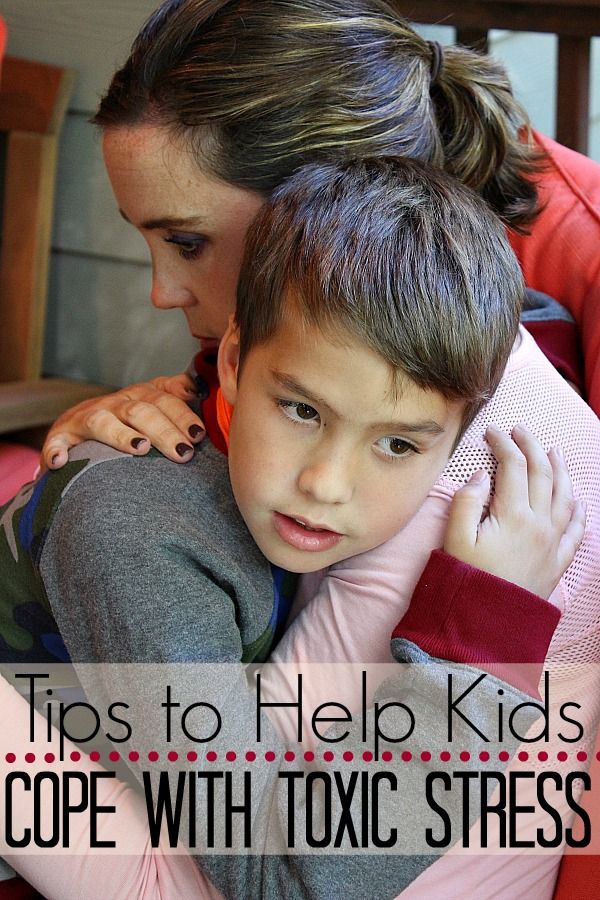 so that children know that parents are always ready to help and support them. When children experience stress, parents need to reassure them that they understand the difficulties their children are going through. Warm and trusting relationships with parents help children cope better with stressful situations.
so that children know that parents are always ready to help and support them. When children experience stress, parents need to reassure them that they understand the difficulties their children are going through. Warm and trusting relationships with parents help children cope better with stressful situations.
7. Provide an atmosphere of open communication
Parents should be prepared to listen carefully when children need to speak up. If children need help discussing the cause of their anxiety, it is important for them to ask open-ended questions (that is, questions that cannot be answered with a simple yes or no and that require long-term answers). Here are some examples of open-ended questions: "What do you think about...?" or “How do you feel about…?”. One of the benefits of discussing stressors is that it increases the child's awareness. In addition, parents should be willing to share some examples of their stressful situations and experiences so that children know that their feelings are normal and natural.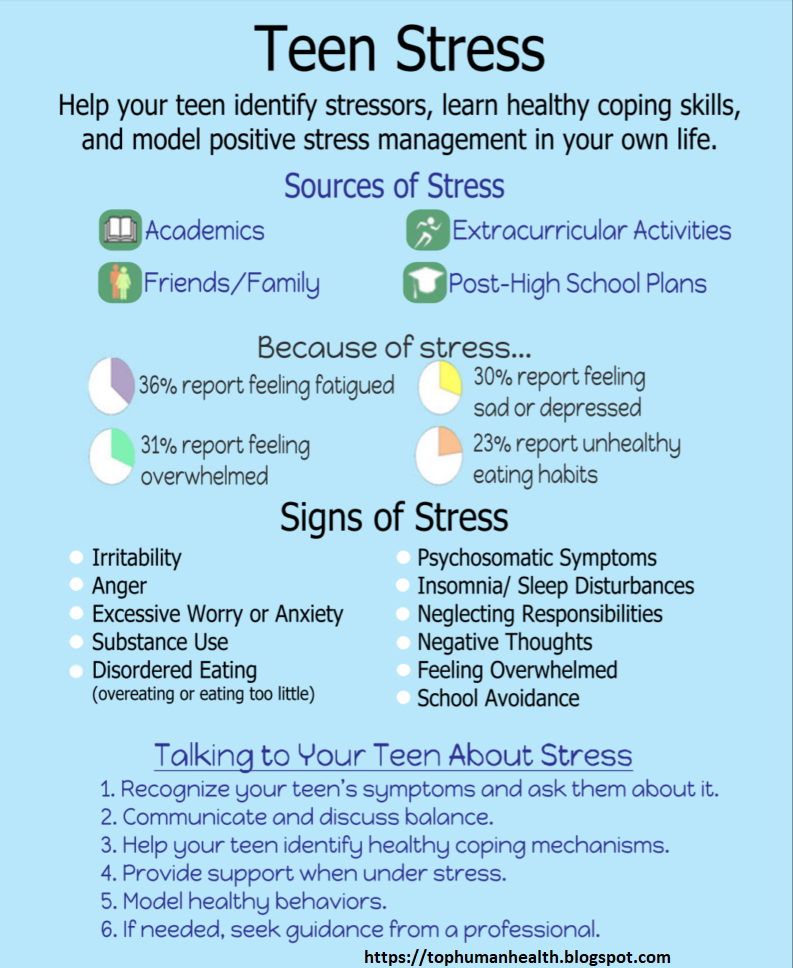
8. Give children enough sleep and/or rest
Children who don't get enough sleep don't have enough energy to deal with stress. Parents should make every effort to ensure that children get enough sleep every night. The child should go to bed at the same time. Adequate rest is critical to children's mental and physical health.
9. Demonstrate stress management skills
Children learn by watching their parents. If children see parents using certain skills when they are stressed, they are more likely to use those same literate stress-handling skills too. Parents should demonstrate that stress is normal and can be managed calmly and effectively. You need to try to be optimistic, who see stressors as a challenge, not a disaster.
10. Help children learn relaxation skills
Relaxation skills can help children relieve tension caused by stress. There are various specific relaxation techniques that can be taught to children.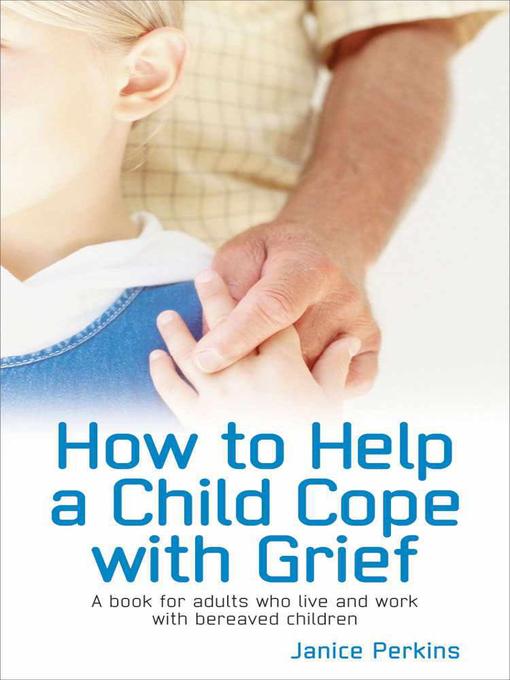 Some of them force children to turn on their imagination to remember or come up with positive and relaxing images (for example, playing on the playground, the beach). Other relaxation techniques teach children to tense and relax different muscle groups in sequence. To achieve maximum effect, you need to practice them daily. It doesn't really matter which relaxation technique you choose. It is important that children like it, help, and that children practice it constantly. Of course, parents first need to consult with a pediatrician and find a qualified trainer.
Some of them force children to turn on their imagination to remember or come up with positive and relaxing images (for example, playing on the playground, the beach). Other relaxation techniques teach children to tense and relax different muscle groups in sequence. To achieve maximum effect, you need to practice them daily. It doesn't really matter which relaxation technique you choose. It is important that children like it, help, and that children practice it constantly. Of course, parents first need to consult with a pediatrician and find a qualified trainer.
11. Teach children how to take criticism properly
Everyone is criticized at one time or another. If it is difficult to accept, it can lead to an increase in the state of stress. Children are often criticized at an early age. It can take the form of ridicule from peers or constructive feedback from teachers and parents. Parents, in turn, should teach their children how to respond appropriately to such criticism. Children need to be taught that no one is perfect, and we all make mistakes, from which we learn important lessons for ourselves. Role plays can also be used to teach children how to deal with ridicule and unfair criticism.
Children need to be taught that no one is perfect, and we all make mistakes, from which we learn important lessons for ourselves. Role plays can also be used to teach children how to deal with ridicule and unfair criticism.
12. Give your children the right nutrition
Proper nutrition is a very important element in coping with stress, especially for children. The best diet for this should contain some supplements, the right amount of calories to support normal development and be balanced. Children who have an unhealthy diet (unbalanced, high in unhealthy foods) should reduce their intake of foods high in fat, cholesterol, salt, and refined or processed sugar. Junk food and caffeine intake should be limited. Children should be encouraged to increase their intake of fruits, vegetables and grains. It is also important to maintain a healthy body weight. If children are overweight, a pediatrician should be consulted for appropriate advice on how to reduce weight.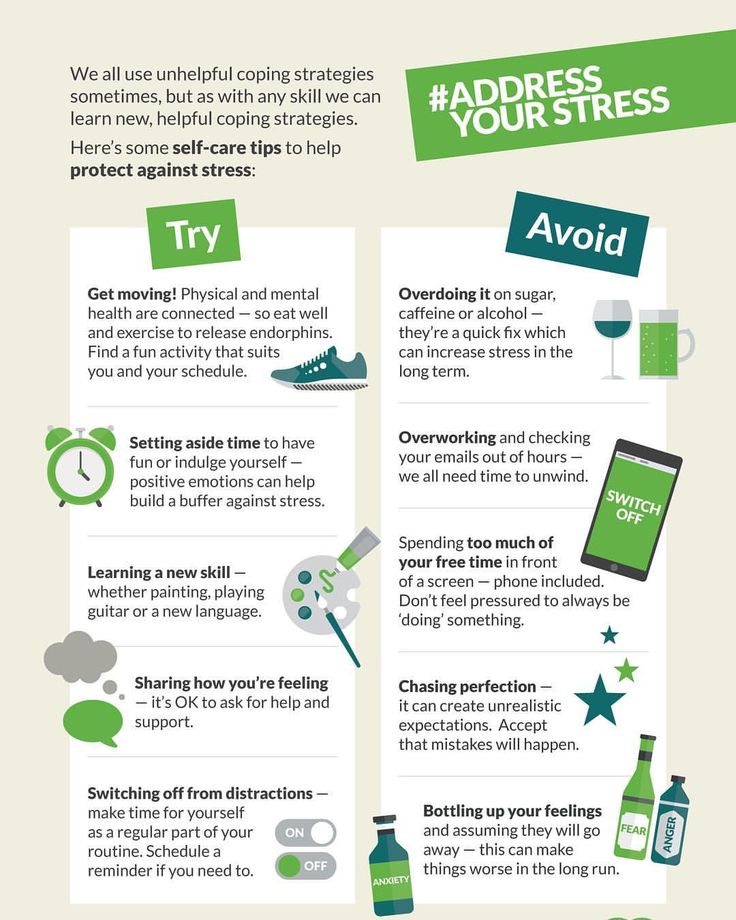
13. Provide a consistent routine or schedule
Children need predictability. It is easier for them to figure out what to expect from life if they have a schedule with prescribed times for eating, doing homework, sleeping, etc. This, in turn, helps them feel safe and reduces stress levels.
14. Help children rethink stressful situations
A child's perception of a stressful situation helps determine how high the stress level is. Parents should take steps to help their children learn to interpret stressors in an alternative way. For example, if a child is stressed because he thinks the teacher doesn't like him because he didn't say hello to him before class, parents can ask the child to try to come up with other explanations for the teacher's behavior. Why not assume that the teacher was just thinking and forgot to say hello. This is an example of rethinking a stressful situation. Parents should help their children come up with alternative and more positive interpretations of stressful situations. Of course, it is impossible to rethink them all. Sometimes there are situations that objectively lead to children's stress. In these cases, parents need to help their children deal with similar situations in other ways.
Of course, it is impossible to rethink them all. Sometimes there are situations that objectively lead to children's stress. In these cases, parents need to help their children deal with similar situations in other ways.
15. Help children change their perceptions of stressful situations
Children's beliefs have a significant impact on themselves: how they behave, whom they choose as friends, what they enjoy outside of school, etc. Children's beliefs to a certain extent, they also determine what can be a cause of stress for them and what is not. Sometimes some children's performances lead to an increase in the state of stress. In such cases, parents need to try to change them. For example, children who believe they should get a 12 on every homework assignment and consider any other grade as a failure experience stress when they don't get the highest score. In this case, in order to significantly reduce the level of children's stress, parents should help them change their beliefs and believe that imperfect grades are also normal.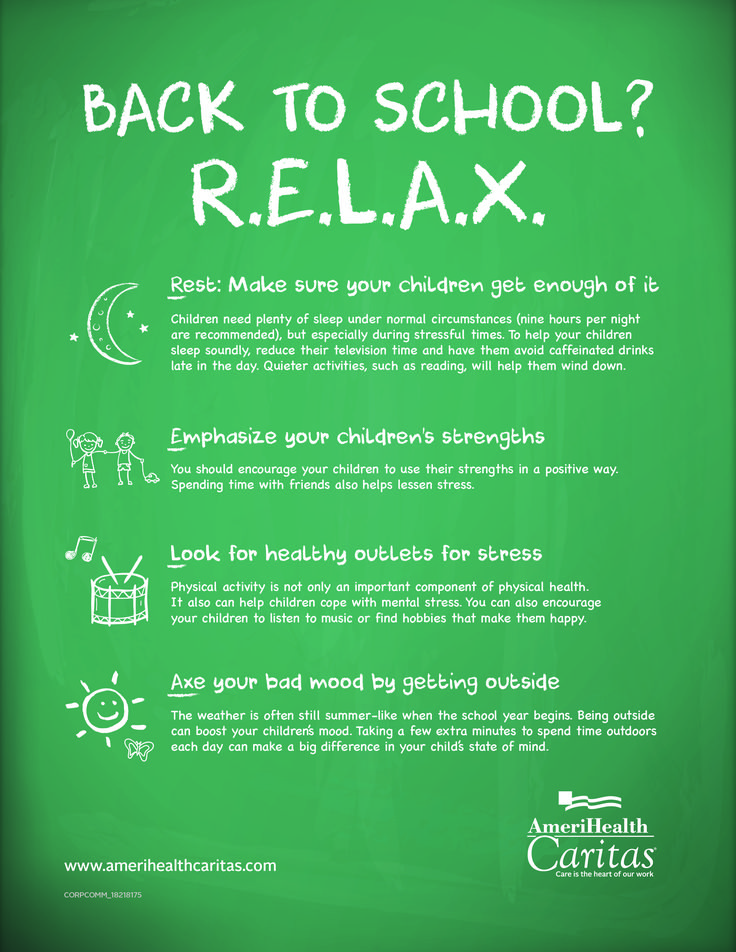
16. Let children do what they enjoy
When children are overstressed, parents should encourage them to do things they enjoy (e.g. playing sports, listening to music, playing games, drawing, reading) . In order to reduce stress levels, activities should be enjoyable and distract children from problems.
17. Get your kids to exercise regularly
Regular exercise is a great way to deal with stress. First of all, they help relieve the tension that accumulates in the child's body. Secondly, exercise involves physical activity that allows the body to become more efficient in dealing with stress. Finally, exercise helps to distract and relax the brain. However, exercise loses its effectiveness in dealing with stress if not done regularly. It doesn't matter what kind of exercise you choose for your child. It is important that children like them. In addition, children will be more willing to exercise if their parents also exercise regularly and develop physically.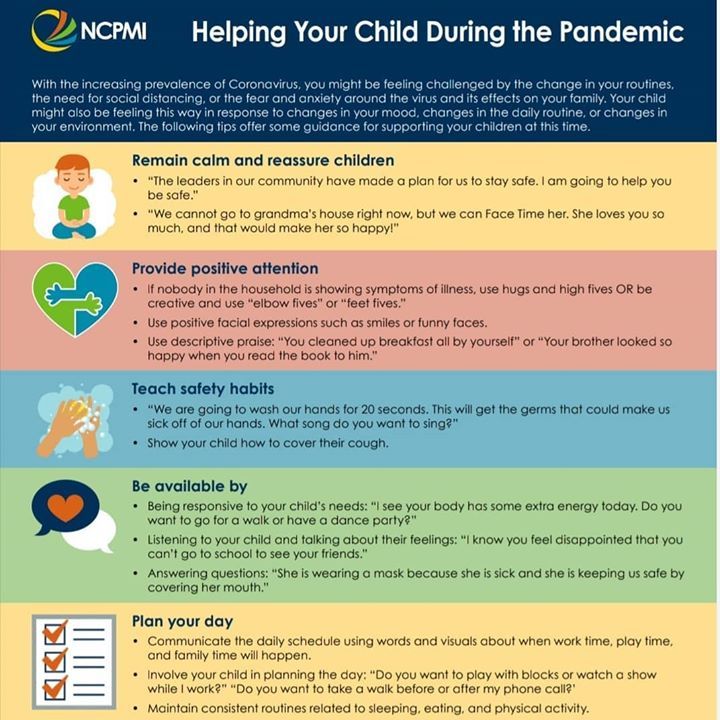
18. Help children learn problem-solving skills
When children face serious problems, parents should use these opportunities to teach them effective problem-solving strategies. First you need to help the child clearly identify the essence of the problem. Then you need to invite him to make a list of possible solutions (without evaluating them at this stage). After the list is ready, you need to invite the child to consider each possible solution separately and evaluate his chances of success. Once all solutions have been reviewed and evaluated, let him choose the best solution he thinks. Parents should encourage and praise children for using effective problem solving strategies.
19. Teach your children to manage their time wisely
It is important for parents to teach their children to prioritize their activities. If children are trying to take on too much responsibility, parents should help them learn to limit their obligations.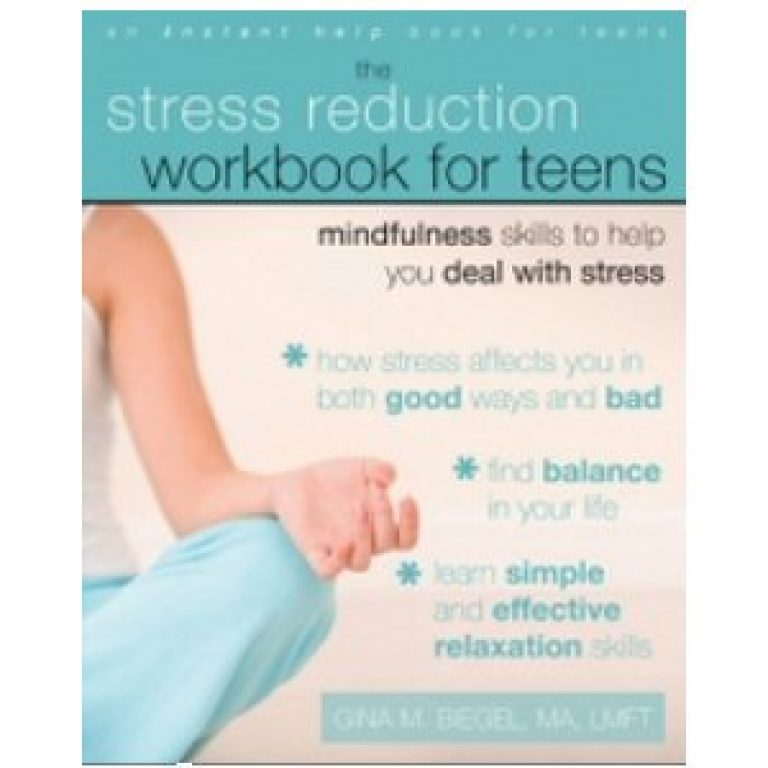 It is necessary to teach children to plan their own time to achieve their goals (for example, set aside certain hours for homework).
It is necessary to teach children to plan their own time to achieve their goals (for example, set aside certain hours for homework).
20. Teach children to be assertive*
Children who are afraid to defend their own interests tend to have difficulty managing stressful situations. Parents should teach their children to stand up for their own interests and to do it politely, with respect for others. You can act out problem situations with your children and teach them to stand up for themselves in an appropriate, non-aggressive way.
21. Develop children's sense of humor
Children who are able to see the funny in everything and can laugh at themselves tend to cope with stress more effectively. Parents should teach their children not to take things too seriously. Laughter is great medicine!
22. Seek professional help if children continue to have difficulty coping with stress
There are times when professional help is needed to help children cope with excessive stress.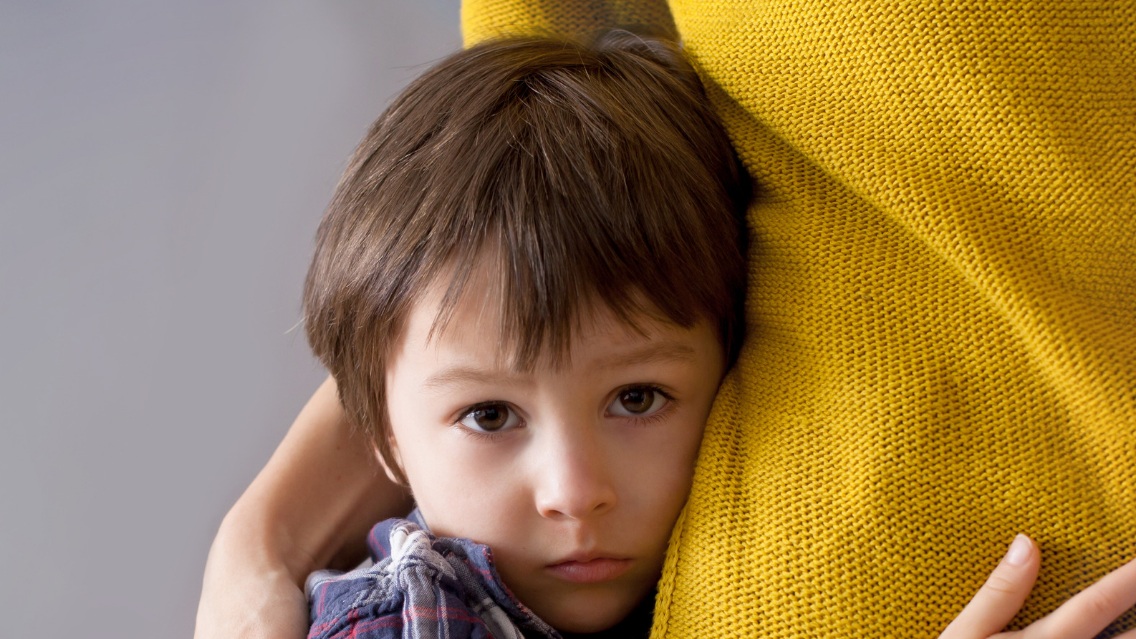 If necessary, do not neglect the advice of your local pediatrician.
If necessary, do not neglect the advice of your local pediatrician.
* Assertiveness is a behavior that combines inner strength and courtesy towards others. This is the ability in a situation of external pressure to correctly defend one’s interests and one’s line of behavior, calmly say “no” to what does not suit you, and continue to effectively insist on one’s rights in a socially acceptable form.
13 Child Stress Technician – Parent and Child
VICTORIA SHIMANSKAYA
psychologist, author of the methodology for the development of emotional intelligence of children
Little children are big experiences. Yes, even at preschool age, a child can have no less reasons for stress than an adult, and in some cases even more - because in addition to psychological development, the child's body goes through an active phase of growth and constant transformation.
It is during this vulnerable period that a high risk of severe stress appears, which, brick by brick, builds a high-voltage wall between us and our children, preventing us from touching the mysterious world of children's experiences.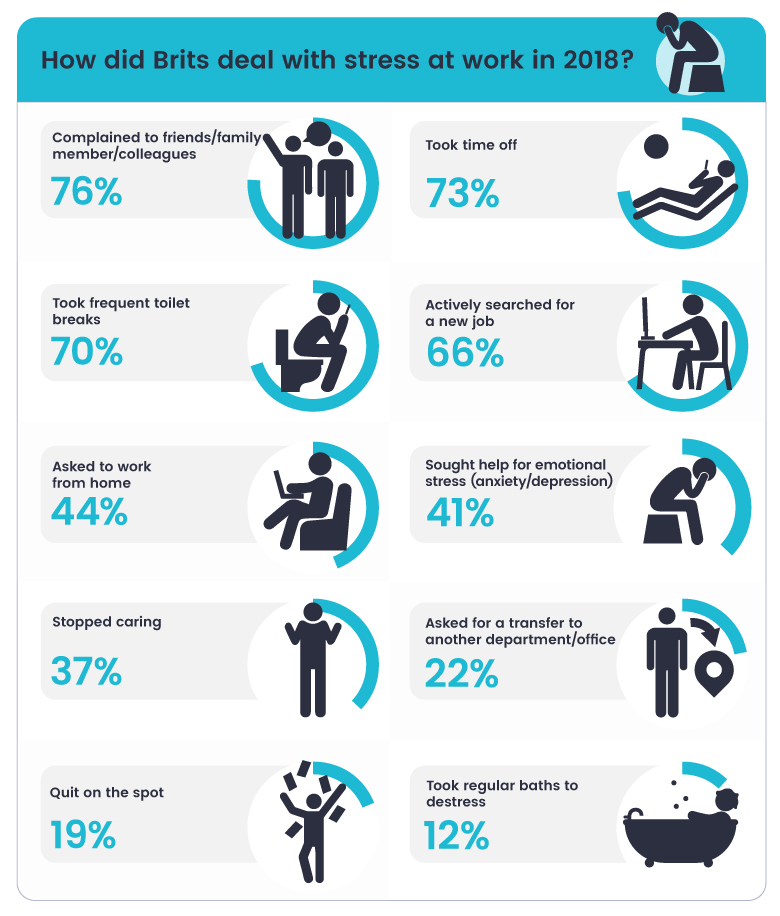
Stress is like a parasite that devours our strength and resources for further development. Its negative component is so great that it is not limited to only psychological problems, but confidently turns into physical ailment and even chronic diseases.
But there is also an unpleasant moral side to all this - very often it is loving parents who surround children with an atmosphere of fear, instability and, as a result, stress.
We are often not ready to admit to ourselves that we cannot accept our children as they are. After all, even if a child in the external society has reasons for stress, it is the family that should serve for him as a kind of antidepressant, but this is possible only with the full acceptance of your child, with endless love for him, the real one.
Unfortunately, few of us are capable of such a "feat". Unconsciously, we endlessly try to remake a small personality for a more comfortable coexistence. We equalize opportunities, equalize characters, equalize aspirations.
We equalize opportunities, equalize characters, equalize aspirations.
We often do not perceive a certain talent in a child, and we strive to extinguish it by reviving new hobbies, new goals. This inability to be oneself inevitably leads to inner loneliness, to a forced existence one on one with one's failures, to deep sadness and disappointment.
This moment of non-acceptance of their child is especially pronounced in the "ideal" parents, who are too demanding of themselves and no less demanding of everyone around them. What are they, these impeccable moms and dads? Of course, successful, of course, self-confident and, of course, omniscient. And often dissatisfied, reproaching, overwhelming.
Being the child of a perfect parent is an unbearable burden. Each oversight, failure, inconsistency causes indispensable criticism, a reproachful look, unpleasant surprise. And many more things that are sharp and memorable.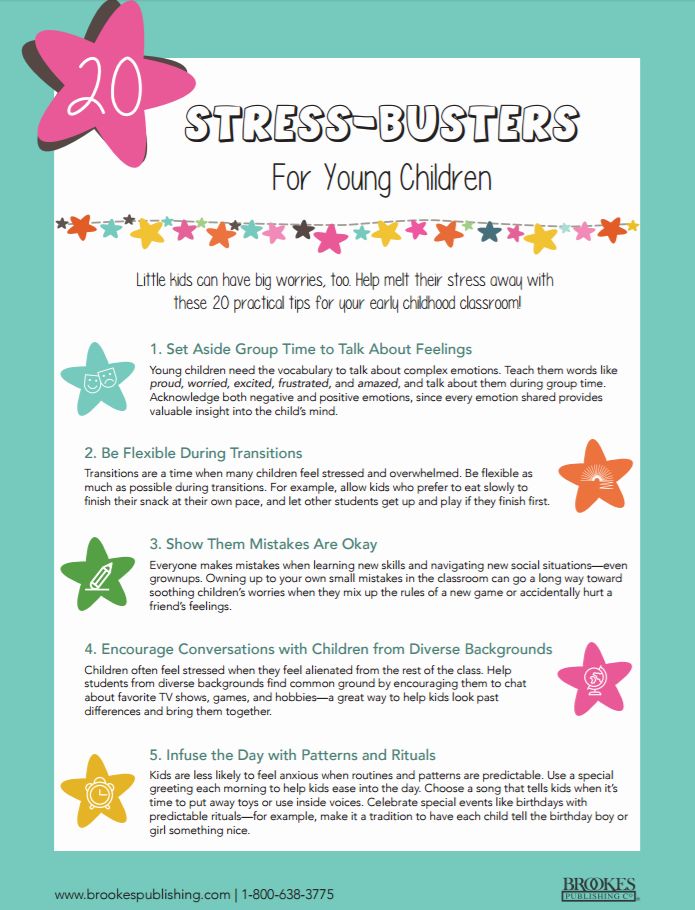 It is incredibly difficult for a child to meet such requirements.
It is incredibly difficult for a child to meet such requirements.
Moreover, the constant fear of being a failure again in the eyes of the parents negates all the efforts and efforts at the very beginning. Such children will never give up trying to please their parents. And such children will always feel their failure so clearly that it will be very difficult to get rid of this feeling.
All this squeezes out positive resources for harmonious growth. Permanent stress, in which the child is forced to exist, at the physiological level does not allow him to liberate his mental, creative and cognitive capabilities. And here we get a vicious circle - we demand better and more from the child, but at the same time we create an atmosphere in which this better and more simply cannot exist.
But, despite all the negative aspects, stress can also be called a kind of engine of internal progress, however, on the condition that these are minor stressful situations that are not permanent.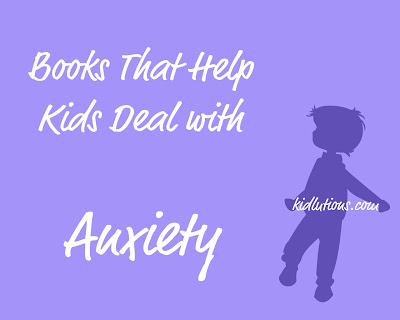
It is stress, like nothing else, that can harden the body and activate the internal resources of self-preservation. We should not forget that we are surrounded by irritating impulses, and we will not be able to protect children from them.
Therefore, it is important to teach the child to cope with them on their own. For example, you can teach him to get acquainted and introduce himself to strangers. So he will feel more confident in the new society. Thus, it is possible to work out various common situations that cause feelings in a child, thereby creating immunity and self-confidence in him.
Just a few questions will help the parent navigate the flow of childhood experiences and determine the right course of action:
The first and most important thing is to always be ready to accept a child with his failure, to talk to him about the emotions experienced: both in case of success and failure.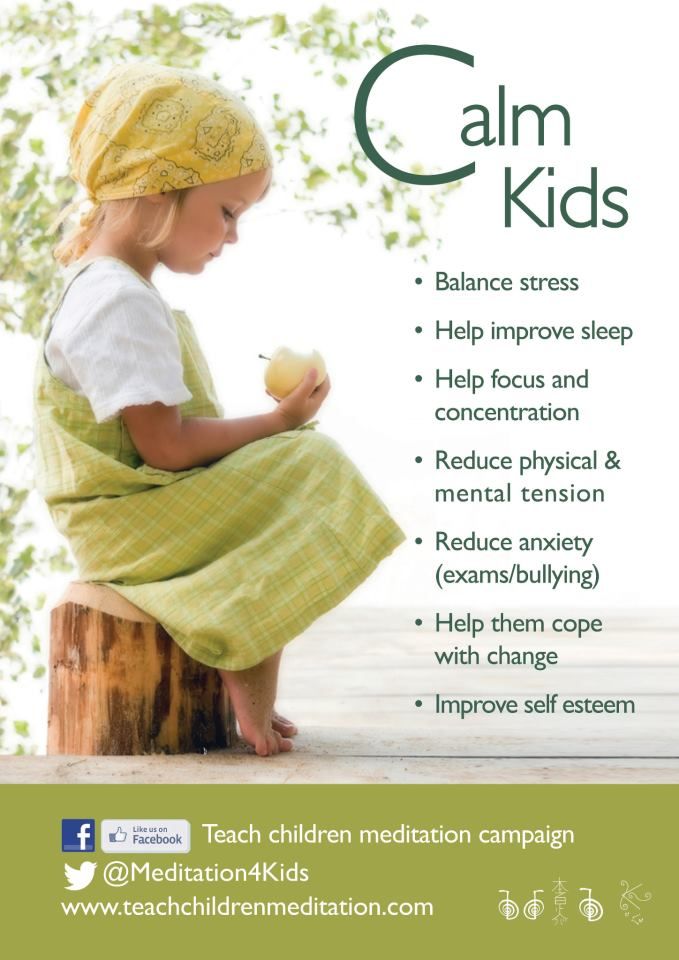
Try to understand with the child what next step he wants to take? What actions will he take if he fails? Will he be ready to try again or not? If he chooses the second answer, what prevents him from being ready?
Offer to beat a painful situation with dad, sister, brother. For example, on the topic of meeting the guys from the new school.
Any controversial situation that we have talked about, played out, discussed with the child in advance, creates in his mind an important experience of overcoming obstacles, allows him to feel his readiness and self-confidence.
Like most other psychological problems that occur in children, the problem of childhood stress does not arise on its own. It is inextricably linked with parents, their perception of their child, their attitude towards him. That is why both parents and children need to work on eliminating permanent stress and its consequences.
Grounding games
Techniques aimed at "grounding" help to feel one's own boundaries, increase awareness of the presence here and now. This skill is necessary for understanding your feelings and emotions, managing them.
We draw. We outline the palms and feet of the child on paper, together we draw funny animals or interesting pictures from the existing figures.
We hug more. This helps the child recognize their limits. In general, understanding your boundaries begins with feeling the boundaries of your body.
Describe your condition. We draw clouds on paper, under which we write: "I feel bad when ..." and fill the cloud with situations that make the child experience feelings. Even if the child does not know how to write yet, you can fill in the clouds yourself, the main thing is to teach the baby to recognize and pronounce his feelings and the situations that these feelings cause.
Heart. Exercise for alternating relaxation and tension throughout the body. We repeat the work of the heart - we fully strain for a few seconds, then we try to completely relax.
Breath. From an early age, we teach the child to work with breathing. Kids will especially like this exercise: we put a small toy on the tummy and draw his attention to how the toy rises and falls with each inhalation and exhalation. Over time, the child will learn to control this process.
Tactile stories. Incredibly fascinating technique of fairy tale therapy. We tell stories using all possible means at hand. For example, we convey aromas from a fairy tale with the help of aroma oils, depict heroes as real toys, and perform actions described in a fairy tale. This helps the child to get involved in the plot and fully understand all the events described from an emotional point of view.
Ridding ourselves of the most common "fit" syndrome
We build our whole life based on the desire to experience the same experience again and again, like nesting dolls in the captivity of conformity, not wanting to change anything from generation to generation. We are driven by the desire to match our personal past, the experience of our childhood, our youth.
We are driven by the desire to match our personal past, the experience of our childhood, our youth.
We endlessly demand from our children the same diligent output of letters in the first grade, the same enthusiasm to read historical literature or go in for sports, music, drawing ... Only such an attitude to life seems understandable and correct to us, only such an attitude we expect from our own children.
Moreover, the experience gained through strong emotions, both positive and negative, is best absorbed. At the same time, very often we do not even realize what exactly in this experience has brought us benefit, and what has brought difficulties.
To do this, we perform 3 release techniques:
Work with the past. We find in ourselves a "resource of happiness"
Find in yourself an image that corresponds to the state of a happy parent. Be aware of it at the level of body position, facial expression, internal state. And tell yourself: "I am a happy mother! I accept my children! I see their talents and help them develop!" Say this phrase until you feel it with your whole being. Remember this state, ask to take a picture of yourself. And return to this image-state every day at least 3-5 times.
Be aware of it at the level of body position, facial expression, internal state. And tell yourself: "I am a happy mother! I accept my children! I see their talents and help them develop!" Say this phrase until you feel it with your whole being. Remember this state, ask to take a picture of yourself. And return to this image-state every day at least 3-5 times.
This exercise will break the chain of neural response that has been entrenched for years.
And the next time you want to say “should” to your child or yourself, enter this state again, you will see how the wording itself, and maybe even the essence of the message to your child, will change dramatically.
Working with the present. Inner circle rule
We all know women who, as the saying goes, "take out the garbage wearing makeup and high heels," and walk around the house in old dressing gowns.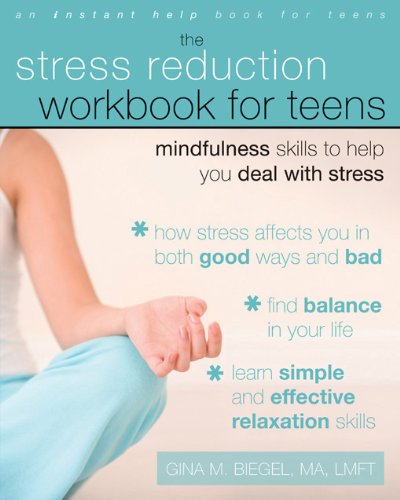 They are sweet and charming on the phone with their girlfriends, wanting to show the perfect picture, but at the same time they are ready to break loose on the child if he does something wrong. How to get rid of this desire to always seem perfect in the eyes of others, but often to the detriment of your loved ones?
They are sweet and charming on the phone with their girlfriends, wanting to show the perfect picture, but at the same time they are ready to break loose on the child if he does something wrong. How to get rid of this desire to always seem perfect in the eyes of others, but often to the detriment of your loved ones?
Practicing Technique "Inner Circle Rule" :
draw circles: one inside the other, while the central circle is you and your family. He is the closest;
next circle symbolizes parents;
then close friends, acquaintances from work;
the last circle is just people around.
Every time we intend to do something, we want to demand something from ourselves or a child, we ask ourselves the question: "What will this give to my inner circle? And what does my child think and feel about this? My husband? I myself ?" And only if this decision can bring joy to our inner circle, we move on.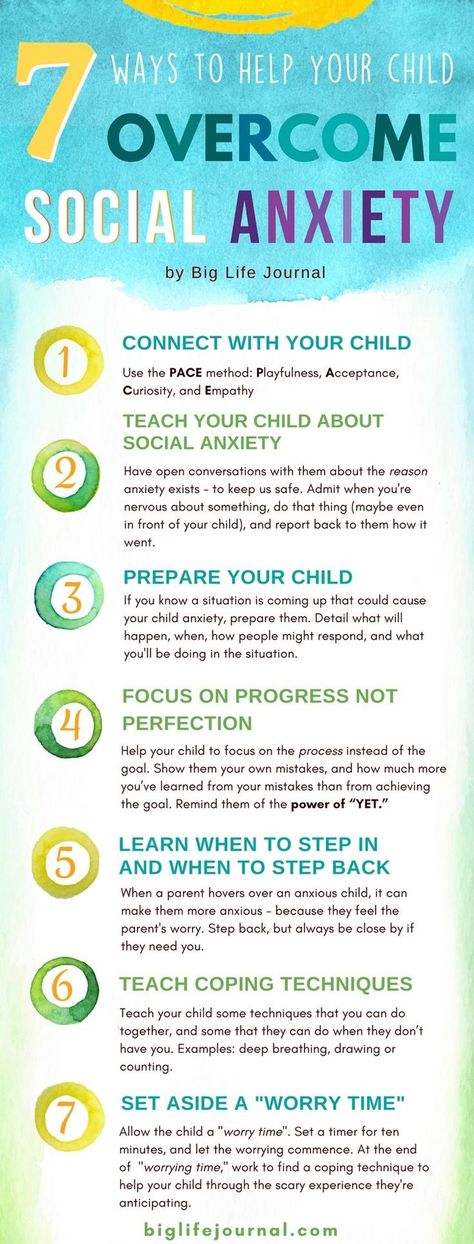
It is often very difficult for children to live up to their parents' expectations. After all, we always draw a picture of the future for ourselves, in which they are already successful, graduated from high school well, created a family with an ideal husband/wife. We try to program our children for this happy future, but at the same time we only develop an inferiority complex in them.
What to do?
We teach children to learn!
It is very important to simply acknowledge the fact that in 15 years 50% of professions will be replaced and that our idea of the future does not reflect at all what in reality can expect us.
The best thing we can do now is to teach the child to learn, to master the important skills of reading, writing, counting, to help him expand his own models of cognition. The technique of five types of content is perfect here.
We choose a new topic that may be of interest to the child, and begin to study it from five different angles. For example, when studying the underwater world, you can read interesting thematic literature, watch a documentary, make your own poster with outstanding abode of the underwater world, arrange a home scene on this topic and, of course, visit the aquarium for a "personal acquaintance".
It is important not to forget that we will not be able to lay straws everywhere, but we can definitely pass on to the child important skills of "survival" in any conditions - the skill of searching and learning, the ability to survive failures and try again, the ability to rely on successes and not stop being happy !
And finally, I would like to tell one little story from my life. When my first child was born, I asked my good friend, a psychologist, a mother of already quite adult children: "Now with your 25 years of motherhood experience, what would you do differently in raising your children?" Her answer was a revelation for me, she said: “I raised them so that first of all they were comfortable with the world, then for me, and only last for themselves.




